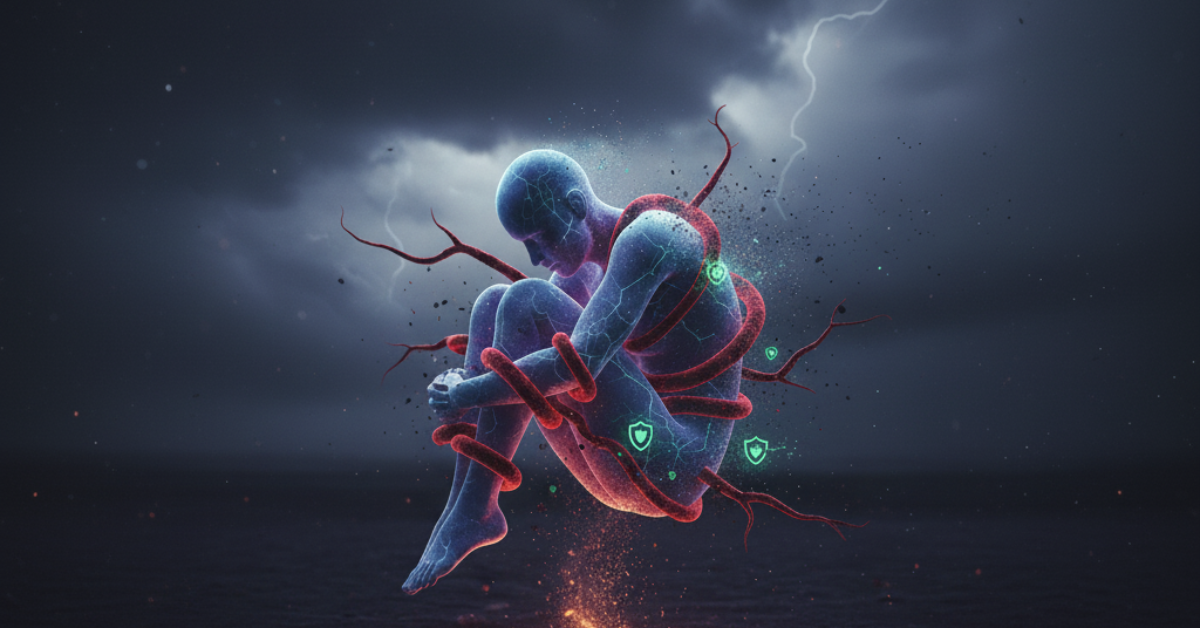When was the last time you truly felt excited about intimacy? If it’s hard to recall, you’re not alone. Sexual dysfunction affects 31% of men at some point in their lives, with decreased libido being one of the most common but least discussed issues.
Contrary to popular belief, low libido isn’t just about aging or relationship problems. It’s a complex outcome of lifestyle choices, psychological patterns, environmental factors, and physiological changes that often worsen over time. The good news? Once you understand the root causes affecting your libido, you can take targeted actions to naturally restore sexual vitality.
This comprehensive guide will help you identify hidden factors that undermine libido and provide evidence-based strategies to address them at their source. Let’s go beyond surface explanations and explore what’s really happening.
The Hidden Truth About Male Libido Decline
Research shows that 4.7% of 45-year-old men are actively addressing low libido, but this only tells part of the story. Many men experience fluctuations in sexual desire without realizing the underlying patterns or triggers affecting their sexual health.
The challenge is that libido factors are interconnected. For example, men with erectile dysfunction are 2.5 times more likely to experience low libido, creating a vicious cycle where physiological and psychological factors reinforce each other.
Modern men face unique challenges their fathers never did: constant digital stimulation, sedentary work environments, processed food diets, and unprecedented levels of chronic stress.
Lifestyle Factors: The Foundation of Sexual Health
Daily habits have a direct impact on libido. From your sleep schedule to your diet, every behavior signals your body whether conditions are suitable to maintain healthy sexual function.
Sleep Quality
Studies show men who sleep less than six hours per night may experience a 10%–15% drop in testosterone. Sleep deprivation also affects erectile function, sperm quality, and overall sexual satisfaction.
Key focus: Establish a consistent bedtime, limit blue light exposure, and prioritize deep sleep to significantly improve hormone levels.
Exercise Patterns
Moderate exercise (like strength training and cardio) boosts testosterone, improves blood flow, and enhances self-esteem. However, overtraining can be counterproductive.
Goal: Exercise 3–5 times per week with adequate recovery and muscle regeneration to maintain hormonal balance.
Nutritional Habits
A diet high in sugar and processed foods can lead to insulin resistance and fat accumulation, which suppress testosterone production.
Focus on protein (fish, eggs, lean meats), healthy fats (avocado, nuts), and zinc-rich foods (oysters, pumpkin seeds) to maintain hormonal balance.
Stress Levels
Chronic stress raises cortisol, which directly inhibits testosterone release. Psychological stress also triggers anxiety and negative emotions that reduce libido.
Incorporate stress-management techniques—mindfulness meditation, deep breathing, and regular social interaction—to lower cortisol and restore healthy sexual drive.
The Impact of Digital Lifestyles: Modern Libido Killers
Hours spent staring at screens—computers, smartphones, or TVs—are quietly eroding sexual desire.
Screen time disrupts circadian rhythms, affecting sleep quality and testosterone levels. Constant dopamine stimulation from social media, online pornography, and short-form videos alters the brain’s reward response, reducing satisfaction from real-life intimacy.
Research shows men who frequently consume pornography report lower libido, decreased sexual satisfaction, and reduced interest in partners.
To reverse this trend: Limit unnecessary screen time, especially before bed; cultivate offline intimacy; and engage in real-life activities requiring focus and physical engagement.
Psychological Factors: Hidden Drivers of Low Desire
While physical factors matter, mental and emotional health play an equally crucial role in libido.
Anxiety, depression, unresolved emotional trauma, or relationship conflicts can suppress sexual drive. Poor self-image, shame, or past failures can also reduce the desire for intimacy.
Psychological low libido often shows as a lack of interest rather than an inability. A person may be physically normal but feel no sexual desire or urge.
Therapies include cognitive-behavioral therapy (CBT), couples counseling, emotional release exercises, and building safe, non-judgmental emotional connections.
Hormonal Imbalances: More Than Just Testosterone
Testosterone is important for libido, but it’s not the only hormone. The endocrine system is complex, with multiple hormones influencing sexual function and desire.
-
Estrogen: Excess levels in men can counteract testosterone.
-
Prolactin: Elevated prolactin suppresses sexual desire, often due to tumors or medication side effects.
-
Thyroid Hormones: Hypothyroidism or hyperthyroidism can disrupt sexual hormone balance.
Comprehensive hormone testing is crucial, especially if lifestyle adjustments alone are insufficient. Doctors can evaluate hormone levels through blood tests and recommend supplementation or treatments.
Medications and Health Conditions
Certain common medications may reduce libido:
-
Antidepressants (especially SSRIs)
-
Blood pressure medications
-
Prostate medications
-
Antipsychotics
Health conditions like diabetes, metabolic syndrome, cardiovascular disease, and chronic pain can also cause hormonal imbalances, nerve dysfunction, or physical fatigue, affecting libido.
If you suspect medication or health issues are affecting your sexual desire, consult a doctor for alternative treatments or symptom management plans.
Age-Related Changes: What’s Normal and What’s Not
Sex hormone levels naturally decline with age. Testosterone may drop 1%–2% per year, especially after age 30. This can lead to reduced libido, weaker erections, and lower energy.
However, “normal decline” doesn’t mean you must accept lower sexual quality. Sudden libido loss, inability to maintain intimacy, or impacts on life quality go beyond normal aging.
The difference:
-
Slow, mild libido decline → Possibly age-related.
-
Rapid or significant libido decline → Possibly due to treatable factors like hormonal imbalance, psychological issues, or illness.
When to Seek Help: It’s Not Just a “Mental Issue”
Many men avoid seeking help due to shame, denial, or lack of understanding, believing things like: “I’m just stressed,” “I’m tired,” or “It’s normal.”
Persistent low libido is not something you have to endure—it may signal an underlying health issue.
Seek medical advice if:
-
Libido suddenly drops and persists for over six weeks
-
Low libido is accompanied by mood changes, fatigue, or weight fluctuations
-
Lack of interest in partners or sex affects relationships
-
Lifestyle adjustments fail to improve symptoms
Functional medicine doctors take a holistic approach, assessing hormones, nutrition, mental health, and lifestyle to create a comprehensive intervention plan.
Your Next Step: Personalized, Integrated Solutions
Low libido is not a single issue, so solutions shouldn’t be one-size-fits-all. Effective recovery strategies consider your lifestyle, physiology, and psychological background.
Key steps you can take:
-
Functional hormone testing: Assess not just testosterone, but estrogen, DHEA, thyroid hormones, and prolactin.
-
Nutrition optimization: Nutrients supporting hormone synthesis include zinc, magnesium, vitamin D, and omega-3 fatty acids.
-
Improve sleep and stress management: Quality sleep and low stress are foundational for sexual function.
-
Exercise and weight management: Regular exercise boosts testosterone; weight loss helps balance insulin and other hormones.
-
Rebuild intimacy and emotional connection: Strong emotional bonds are vital for sexual desire, especially in long-term relationships.
Final Thoughts:
Libido is not a luxury—it’s a core component of overall health and quality of life. By identifying root causes and taking personalized, integrative action, you can restore vitality, rebuild confidence, and reclaim intimacy.
Don’t let silence become a habit. Your body is sending signals—now is the time to listen and act.
For Men Seeking Natural Support
If you’re looking for natural, safe, science-based methods to enhance sexual health, our functional medicine approach may be right for you. Our integrative strategies focus on identifying underlying imbalances, not just relieving symptoms.
Through personalized hormone testing, nutritional guidance, and lifestyle optimization, you can restore your body’s natural rhythm and regain confidence and vitality. Schedule a consultation to learn how to begin your transformation journey.





